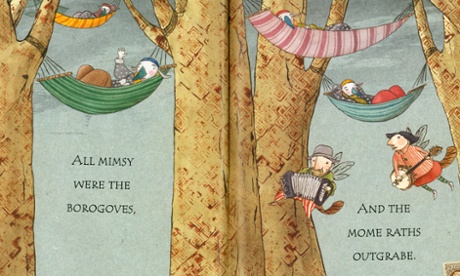No Fear Shakespeare: As You Like It: Act 1, Scene 2, Page 2
ORIGINAL TEXT | MODERN TEXT | |
25 | ROSALIND
What shall be our sport, then?
| ROSALIND
Well, then, what should we do for fun instead?
|
| CELIA
Let us sit and mock the good housewife Fortune from her wheel, that her gifts may henceforth be bestowed equally.
| CELIA
Let’s go find that hussy, Fortune, and and mock her till she starts distributing her gifts more equally.
| |
| ROSALIND
I would we could do so, for her benefits are mightily misplaced, and the bountiful blind woman doth most mistake in her gifts to women.
| ROSALIND
I wish we could do that, because Fortune gives all of her gifts to the wrong people, and she especially gets things wrong where women are concerned.
| |
| CELIA
'Tis true, for those that she makes fair she scarce makes honest, and those that she makes honest she makes very ill- favoredly.
| CELIA
It’s true: the women she makes beautiful she also makes slutty, and the women she makes pure and virginal she also makes ugly.
| |
35 | ROSALIND
Nay, now thou goest from Fortune’s office to Nature’s.
Fortune reigns in gifts of the world, not in the lineaments of
Nature.
| ROSALIND
No, you’re getting Fortune and Nature mixed up: Nature determines how we’re made, and Fortune decides what happens to us.
|
Enter TOUCHSTONE
|
TOUCHSTONE enters.
| |
| CELIA
No? When Nature hath made a fair creature, may she not by Fortune fall into the fire? Though Nature hath given us wit to flout at Fortune, hath not Fortune sent in this fool to cut off the argument?
| CELIA
Oh, really? Well, when Nature makes a person beautiful, can’t Fortune make her fall into a fire, thereby making her ugly after all? And even though Nature has given us the wit to have this argument, hasn’t Fortune sent this fool here to stop us?
| |
| ROSALIND
Indeed, there is Fortune too hard for Nature, when Fortune makes Nature’s natural the cutter-off of Nature’s wit.
| ROSALIND
Yes, and now Fortune is playing a nasty trick on Nature: she’s breaking up a show of wit between two naturally witty women with the arrival of a natural fool.
| |
| CELIA
Peradventure this is not Fortune’s work neither, but Nature’s, who perceiveth our natural wits too dull to reason of such goddesses, and hath sent this natural for our whetstone, for always the dullness of the fool is the whetstone of the wits. How now, wit, whither wander you?
| CELIA
Well, maybe this is Nature’s work after all. Maybe Nature sensed that we’re not smart enough to be having this high-flown discussion about goddesses, so she sent us this fool to use as a mental
WHETSTONE
A whetstone is used to sharpen knives.
whetstone. After all, smart peoples' wits are always sharpened by the presence of a fool. What’s up, you wit? Where are you wandering off to? |
"Nay, now thou goest from Fortune’s office to Nature’s.
Fortune reigns in gifts of the world, not in the lineaments of Nature."
--Rosalind from "As You Like It" (1.2) 朱生豪譯:......命運管理著人生的賞罰,可是管不了天生的相貌。
Fortune reigns in gifts of the world, not in the lineaments of Nature."
--Rosalind from "As You Like It" (1.2) 朱生豪譯:......命運管理著人生的賞罰,可是管不了天生的相貌。





